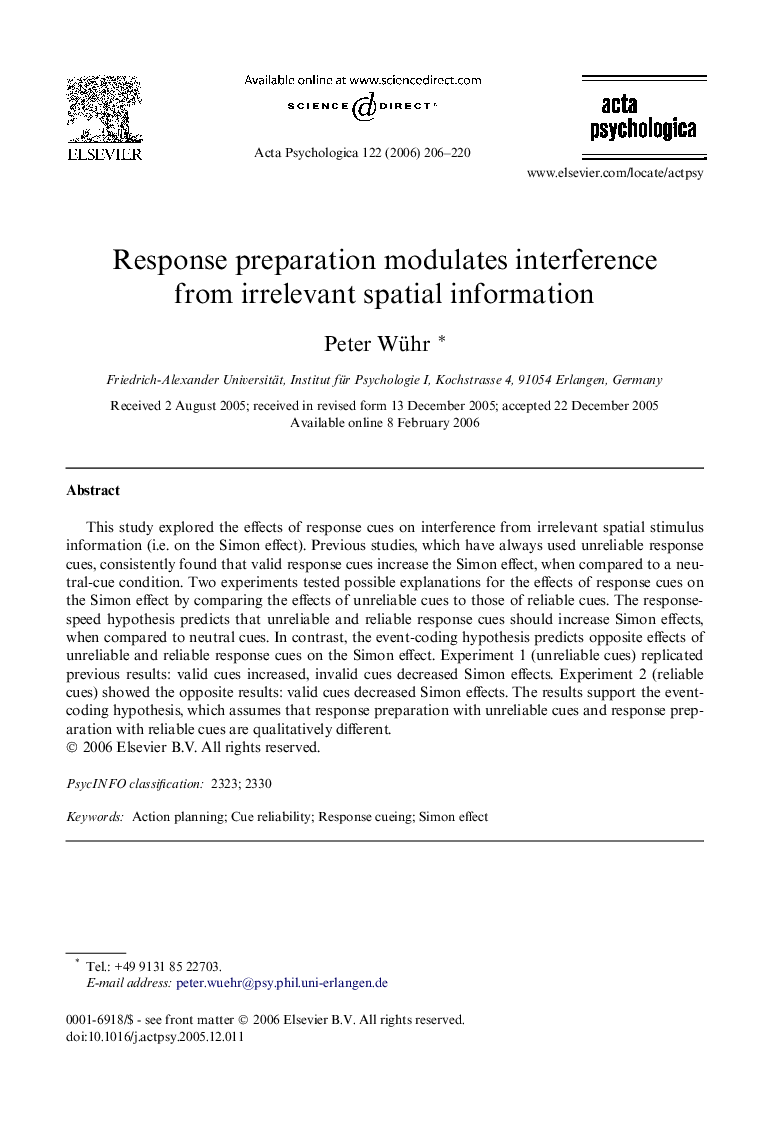| Article ID | Journal | Published Year | Pages | File Type |
|---|---|---|---|---|
| 920673 | Acta Psychologica | 2006 | 15 Pages |
This study explored the effects of response cues on interference from irrelevant spatial stimulus information (i.e. on the Simon effect). Previous studies, which have always used unreliable response cues, consistently found that valid response cues increase the Simon effect, when compared to a neutral-cue condition. Two experiments tested possible explanations for the effects of response cues on the Simon effect by comparing the effects of unreliable cues to those of reliable cues. The response-speed hypothesis predicts that unreliable and reliable response cues should increase Simon effects, when compared to neutral cues. In contrast, the event-coding hypothesis predicts opposite effects of unreliable and reliable response cues on the Simon effect. Experiment 1 (unreliable cues) replicated previous results: valid cues increased, invalid cues decreased Simon effects. Experiment 2 (reliable cues) showed the opposite results: valid cues decreased Simon effects. The results support the event-coding hypothesis, which assumes that response preparation with unreliable cues and response preparation with reliable cues are qualitatively different.
